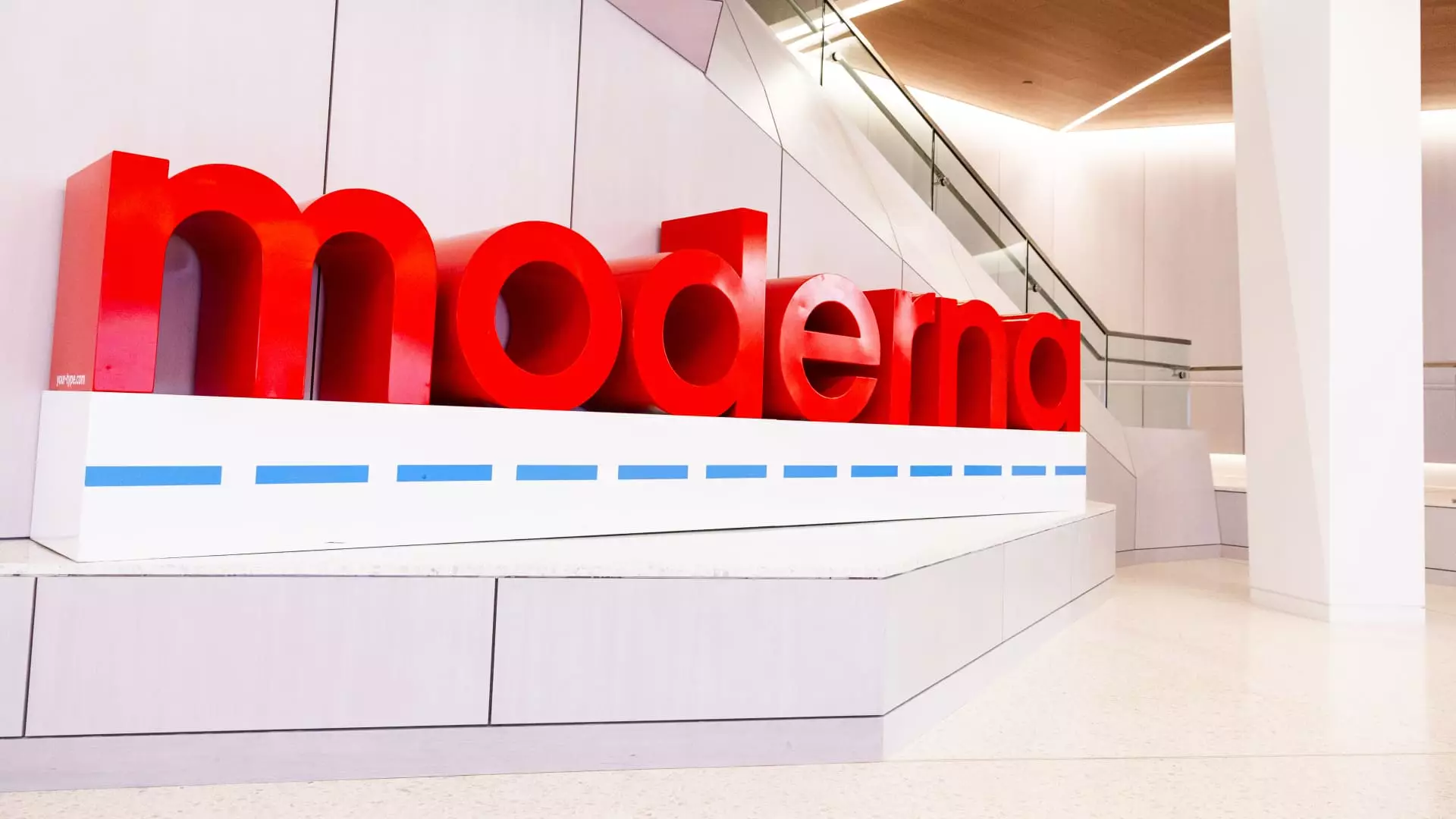In a surprising development, Moderna, the renowned biotechnology company, reported a net income of $13 million for the third quarter of the fiscal year, translating to earnings of 3 cents per share. This marks a stark contrast to the net loss of $3.63 billion or $9.53 per share the company faced during the same quarter last year. The promising figures not only defy Wall Street’s gloom-laden expectations, which anticipated a loss of approximately $1.90 per share, but also exemplify solid groundwork laid through strategic cost-cutting initiatives. With the company’s ambition to save $1.1 billion by 2027, these numbers serve as validation that austerity measures may indeed bear fruit as Moderna grapples with the diminishing revenues stemming from its Covid-19 vaccine.
Bridging the Gap With New Products
Adding further intrigue to the company’s fortunes is its recent jump into the competitive landscape of respiratory vaccines, marked by the rollout of its vaccine against respiratory syncytial virus (RSV). This product marks the biotech’s second commercial offering and signifies a broader strategy to stabilize revenue streams beyond the Covid-19 pandemic. The inclusion of RSV vaccine sales into the third quarter’s financials may have provided a much-needed boost; however, the performance fell short of analysts’ predictions of $132 million in sales. The premature approval and late-market entry of the RSV shot hindered its performance this quarter, suggesting a critical need for timely initiatives in future product launches.
Overall revenue for the quarter reached $1.86 billion, marginally surpassing the $1.83 billion earned during the same period last year. The primary driver of this figure remained the Covid-19 vaccine, which amassed significant sales. Out of the total revenue, $1.2 billion stemmed from U.S. sales, complemented by approximately $600 million from international markets. Additionally, the company logged $10 million from RSV sales, affirming that while diversification is underway, the Covid-19 vaccine still reigns as the cornerstone of Moderna’s income. Both investors and analysts alike are watching closely, noting that revenues may further dip as the post-Covid landscape becomes more defined, calling into question the long-term sustainability of such income sources.
Despite its current reliance on Covid-19 vaccine sales, Moderna is not standing still. Plans are underway to file for approval of a new “next-generation” Covid vaccine alongside a combination flu and Covid vaccine, due before year-end. Additionally, the company is seeking expanded approval for the RSV vaccine aimed towards those aged 18-59. These products are integral to Moderna’s long-term strategy of leveraging its messenger RNA technology to develop a broader portfolio of vaccines and therapeutics. The projected development pipeline includes 45 products, among which 10 are planned for market introduction in the next three years, indicating a forward-thinking approach in the face of impending challenges within the vaccine market.
Cost Management: A Critical Focus
One of the most salient themes emerging from the third-quarter report is Moderna’s aggressive focus on cost management. The company managed to cut its cost of sales by a staggering 77% year-over-year, a notable achievement in an industry often criticized for high operational expenses. This strategic reduction included the write-down of unused vaccine doses and expenditure cuts in clinical development. Notably, research and development costs were also reportedly down by 2%, demonstrating prudent management despite the high stakes involved in pharmaceutical innovation. Selling, general, and administrative expenses decreased significantly as well, further suggesting that the company is intent on creating efficiencies wherever possible.
While the latest earnings report presents an optimistic view, stocks nevertheless reveal a stark reality, with shares plummeting almost 50% throughout the year. Investors are grappling with uncertainty surrounding Moderna’s transition from pandemic response to renewed normalcy, as well as the fierce competition within the healthcare industry. As the company navigates a challenging landscape characterized by pricing pressures and evolving consumer preferences, its commitment to innovation and cost-efficiency will likely be scrutinized closely. The market will await Moderna’s next moves, as shareholders and healthcare stakeholders alike anticipate how effectively the company can pivot its operations and product offerings in alignment with changing market dynamics.
While Moderna delivered an unexpected profit against the backdrop of upheaval, the journey ahead remains complex as the company adapts to a post-pandemic reality while it endeavors to continue its legacy in biotech innovation.


Leave a Reply